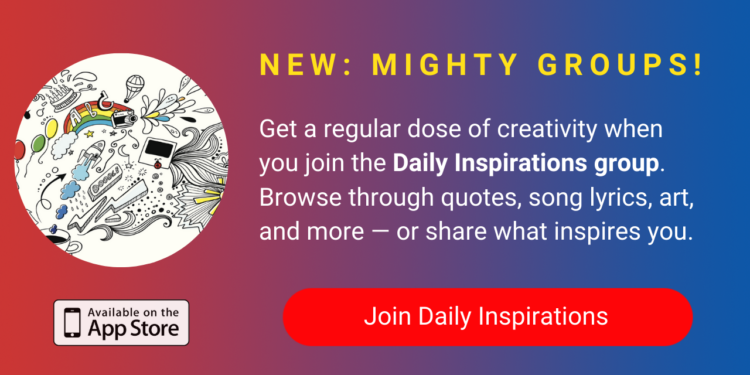The COVID-19 shelter-in-place and lockdown are creating physical distancing. For certain people, this can result in a feeling of isolation. In this story, I want to examine what it means to be isolated and how it affects our mental health and our basic human programming. Is isolation the same as loneliness? Are there any benefits to isolation? How do we deal with or handle the feelings of isolation and loneliness?
Based on the Science of Touch, safe and respectful physical touches, such as subtle handshakes, light hugs and pats on the shoulders, are important to emotional health, communication and the ability to build trust. In fact, touching is an essential part of our human evolution and growth. It starts with our mother’s touch which can signify security. With the virus and social distancing, it is becoming taboo to touch people that you are not close with, let alone a simple handshake with a stranger.
Even before the pandemic, many people felt lonely. Now, the lack of physical and social interactions due to quarantine is causing certain people to feel socially isolated.
To really understanding isolation, we also need to examine three other words, which are “loneliness,” “boredom,” and “distractions.”
Throughout human history and our individual living experience, being isolated is actually quite common. For example, the time we spend walking, studying, sleeping, shopping for groceries, playing video games and driving by ourselves. While doing these things by ourselves, we might be surrounded by people, but still, feel alone and experience loneliness. I remember when I was attending a college that had about 30,000 students on campus with some classroom sizes up to 500 people, and almost every day I felt very lonely.
Feeling lonely can be very scary and depressive. During this lockdown, some individuals are surrounded by roommates and family members, still, these people can experience loneliness.
Sometimes the fear of being alone is fueled by boredom. Our brain needs to be occupied. When our jobs, studies and other activities appear to be meaningless and non-stimulating, we start to get bored. Since most of us are afraid to be with our own thoughts and to be present at the moment, when we start turning our attention to ourselves, we freak out. Thus, more and more studies have shown how boredom is tied to increased alcohol intake, marijuana use, “unhealthy” snacking and online pornography. With shelter-in-place and for people who are furloughed or who have lost their jobs, for the very first time these individuals are experiencing extra time and stress. Now, they don’t know what to do and there are not enough distractions to fill the void.
This brings us to the unprecedented external distractions that are available to us 24/7. With smartphones and internet access, we also have access to 500 TV channels, Netflix, YouTube and other streaming services. Social media dominates the average American daily life. Before the pandemic, sports cycled through every season. And on top of these electronic entertainments, we had weekend brunches with bottomless mimosas, happy hours, concerts, social events, 5K runs, holiday parties and pretty much every forsaken reason for partying and drinking. We had easy access to recreational substances and the affordability of traveling.
While these distractions may feel good at the moment, these enjoyments have given us the perfect distraction from our loneliness and boredom to the point that we are heavily dependent on them to just get by in our daily life. These distractions prevent us from learning to live with our thoughts and emotions, from experiencing and understanding our boredom and finding meaningful ways to cope with loneliness.
Combining loneliness, boredom and distractions, we then have a perfect storm in which we don’t know how to handle ourselves during the current pandemic. To prevent feeling isolated, lonely and bored, we need to find solutions within ourselves and at home that will provide lasting meaningfulness and challenges.
1. Know Your Passion
If you don’t know what you love to do or don’t have any hobby, it’s time for you to figure it out. If you do know, then start pursuing or rebuilding those passions and hobbies. Ultimately, you need to replace the external distractions with your internal interests. The more you can occupy your thoughts and emotions with your passions, with renewed meaning and purpose, the less bored and lonely you might be.
For example, I used to be glued to my TV and phone about five hours per day and wasted my time watching shitty shows and people’s complaints on social media. On top of that, I distracted myself with happy hours and different social events so I wouldn’t need to be by myself. When I discovered that I wanted to be a badass professional speaker and start my own business, I was able to fill my mind and emotions with newfound passions. When this happened, I found new meaning and purpose. And I was able to slowly remove those external distractions to the point that I am now totally comfortable staying at home on Friday nights and weekends to work on my business while cutting down my TV and phone time to one hour per day.
2. Catch Your Thoughts
Like all emotions, loneliness and boredom are the mindsets that you have at the moment. Due to years of unhealthy mental and emotional habits that we’ve developed, we typically bombard our minds with negative thoughts. A few examples of negative thoughts are, “I am not good enough, so what’s the point of improving myself,” “I can’t stand myself,” “I am not smart enough to start my own business,” and, “No one cares about me, I am all alone.”
Learn to be aware and catch these negative thoughts. Often times, these negative thoughts are precursors to depression and anxiety. The best way to catch this type of negative thinking and transform it into positive thoughts is by using an affirmation. Affirmation is telling yourself that “I am not alone,” “I am smart enough,” “I know what I love and I am going pursue it,” and “I can do this.”
3. Paradigm Shift: Benefits of Boredom
We are wired to believe that boredom is all bad for us. Yes, boredom is unpleasant, but there are benefits to being bored. Boredom can lead you to have better ideas, to problem-solve, be creative and discover a deeper understanding of yourself. So, take some time to learn to be comfortable with your boredom by being in the presence. This can be done through a simple meditation.
For example, whenever I start feeling bored, I take a couple of minutes to meditate on this boring feeling inside me to understand why am I having this feeling and where is this boredom is coming from. The key is not to force an answer; instead it’s a process of learning about ourselves. This simple meditative reflection has helped me to gain more understanding of myself, my insecurities, and my interests.
4. Learn to be Alone
Instead of believing that you are alone and lonely, learn to enjoy being solitary. Similar to the benefits of boredom, there are numerous advantages to being in solitude. The benefits of solitude allow you to reboot your brain and unwind, improve concentration, give you opportunities to discover yourself and find your own voice, provides time for you to think deeply and helps you work through problems more effectively.
For example, I go on long walks by myself. Do I feel lonely, yes. But, I’ve learned to enjoy walking by myself because I notice that during those quiet walks, my brain becomes more creative. The majority of my blogs are inspired and written after I take a long quiet walk by myself.
Another example is eating alone at a restaurant. When I was younger, I was fearful of eating by myself alone in a restaurant. Again, this is because my mind was bombarded with my own insecurities. Now, sometimes I enjoy having a meal by myself more than with my friends. I can eat at peace and really enjoy the food, instead of dividing my attention to listen and converse. Also, I am not only fueling my body with food, I am fueling my brain with important quiet times.
5. Social Distancing vs. Physical Distancing
There is a difference between physical distancing and social distancing. I believe that we need this physical distancing for now until the pandemic is over, but this doesn’t mean we need to have to be completely socially distant. You still can say hi by waving or nodding your head when you see your neighbors or to the person standing six feet. in front of you at the grocery store.
Nowadays it’s easier to connect with people that you know. Check-in on people that you know, use some of your TLC or reach out to people you haven’t talked to for a while. Take these opportunities for connecting with people to have authentic and genuine conversations. When you ask, “How are you?” really mean it. When you have in-depth conversations with people, especially with the individuals who you know and care about, you are creating meaning and purpose that are replacing loneliness, boredom and external distractions.
Getty image via GDArts


